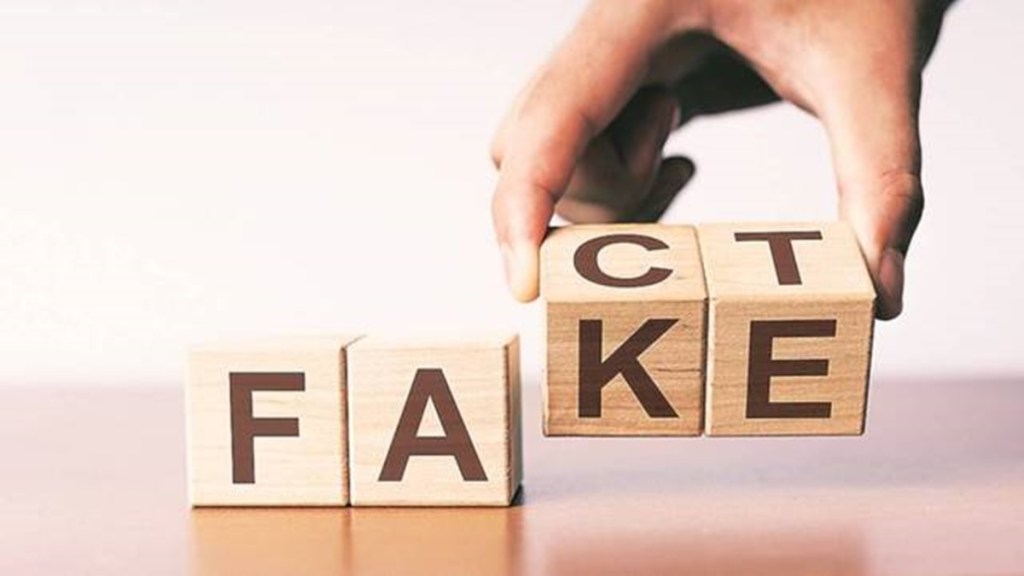By Anuraag Saxena and Raghav Pandey
Fake news is quickly becoming the issue of the decade. With misinformation campaigns interfering with elections, supply chains, company valuations, and individual reputations, the fact-checking industry has emerged as a measure of control in the otherwise unfettered world of news and social media. As trust in media falls empirically across the world (the Ipsos Global Trustworthiness Monitor discovered that the media industry is trusted lower than pharma, oil, and even the government), fact-checkers have emerged as the much-needed referees.
However, many academic studies and experts have found that fact-checkers might also muddy the waters with their inconsistent and cloudy internal processes. Scientific American stated, “Fact-checkers aim to get closer to the truth, but their biases can shroud the very truth they seek”. Harvard published a peer-reviewed paper titled “The presence of unexpected biases in online fact-checking”.
The ministry of electronics and IT recently proposed the Digital India Bill to replace the Information Technology Act (IT Act), which is to be opened up for public consultation soon. Media reports suggest this bill may contain provisions requiring online fact-checkers to be regulated by the government.
Prima facie, this is a desirable move as it levels regulatory control of this sector, like it is with news and films (who have historically been more than comfortable criticising the government, despite being regulated). Regulating fact-checkers not just provides checks and balances, but also protects the legitimate players against the unscrupulous ones within the industry. Regulation and oversight also ensure protection against trigger-happy fact-checkers that often fuel misinformation campaigns under the guise of “free speech”.
The minister of state for electronics and IT, Rajeev Chandrasekhar. elaborated the intent of the IT Rules in a tweet, “When Social Media Platforms in particular n Internet intermediaries work to prevent #FakeNews, #MisInformation n #DisInformation – thn users #Trust increases. Our govts #ITrules require platforms to do just that”.
Take the case of misinformation in the business world. Eli Lilly lost $15 billion in market cap after a tweet by a fake account was wrongly “verified”. Multiple unverified videos show Tesla cars mysteriously bursting into flames. Predatory market manipulators shorted a run on the Adani group, premised on claims that were later refuted. Even sophisticated news organisations like The Financial Times and CNBC.com were duped by a letter allegedly from the CEO of the investment firm BlackRock.
Memetic misinformation has presented new-age challenges hitherto unheard of. This is where business or political competitors use social media memes and posts for propaganda. In a fascinating paper titled Who Will Check the Checkers? False Factcheckers and Memetic Misinformation, Andrew Moshirnia from Monash University discusses the scale of the issue, some very disturbing trends (including racial disharmony), and potential solutions.
This is not just a question of dollars and cents, but also of morality. Tagging a piece of information as true or false is an adjudication on a question of fact. This decision is a judgement in every sense of the word, and legally speaking, adjudication is the realm of a judicial or quasi-judicial authority, especially so when it involves public-interest. Nations do not outsource the adjudication of public interest to private enterprises—not without control mechanisms in place.
The only question that remains then is how fair the regulation is. Is it one that satisfactorily protects its citizens, or an autocratic imposition that stifles the industry? Individual regulations prescribed by the government in the form of notifications, by-laws, or even statutory provisions (of the Digital India Act or any other) enacted by the parliament can be challenged before the courts if they are draconian or arbitrary for overstepping the constitutional boundaries. The Constitution prescribes freedom of speech and personal liberty as central values in our framework. If the regulatory framework escalates to stifling the freedom of speech and expression, the concerned rules are likely to be questioned before the courts.
It is imperative to acknowledge that misinformation and fake news are highly serious issues that can lead to macroeconomic instability or social instability, especially in the era of artificial intelligence, where it is, paradoxically, both very easy and very difficult to verify the authenticity of a forged video or picture. Think predatory reputational attacks on a celebrity, deep fake videos of political leaders, malicious reports about the holdings of a bank, spreading panic about a natural calamity, and more.
From the era of “Aswatthama maara gaya” (Aswatthama is dead), disinformation has been an integral weapon in civilisational wars. Citizens have a right to the truth. Governments have an obligation towards it—the truth, not as a subjective point-of-view, but as one that is validated by authority. That can only happen if there is regulation that supports responsible fact-checkers and delivers consequences to the unscrupulous ones.
Writers are respectively, a board advisor & public affairs expert, and assistant professor, NLU Delhi

